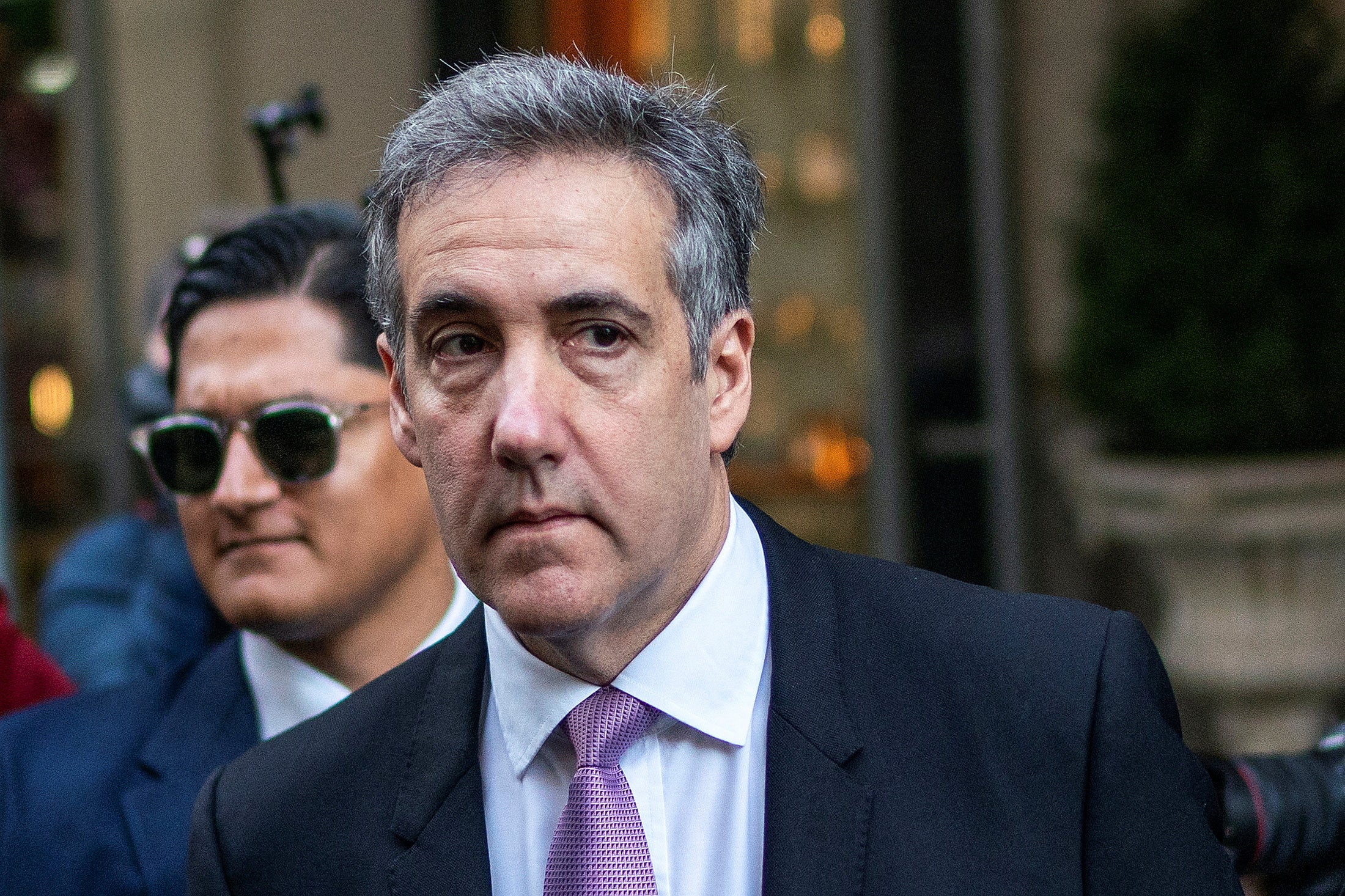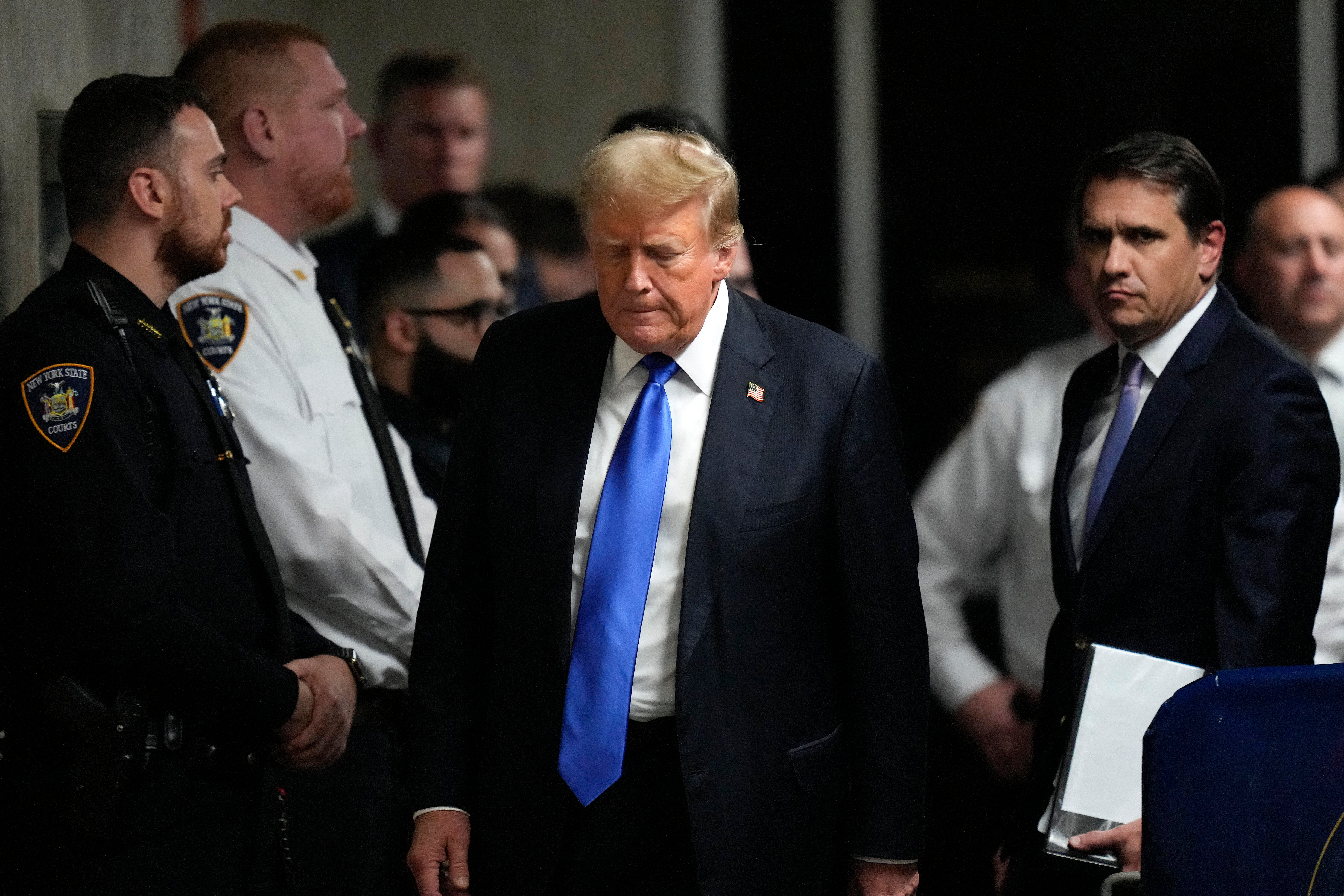Supreme Court rejects Michael Cohen’s case alleging retribution by Trump over tell-all book
The former ‘fixer’ accused Trump of unconstitutional retaliation by keeping him in solitary confinement
Your support helps us to tell the story
From reproductive rights to climate change to Big Tech, The Independent is on the ground when the story is developing. Whether it's investigating the financials of Elon Musk's pro-Trump PAC or producing our latest documentary, 'The A Word', which shines a light on the American women fighting for reproductive rights, we know how important it is to parse out the facts from the messaging.
At such a critical moment in US history, we need reporters on the ground. Your donation allows us to keep sending journalists to speak to both sides of the story.
The Independent is trusted by Americans across the entire political spectrum. And unlike many other quality news outlets, we choose not to lock Americans out of our reporting and analysis with paywalls. We believe quality journalism should be available to everyone, paid for by those who can afford it.
Your support makes all the difference.The Supreme Court has denied Michael Cohen’s request to hear his case against Donald Trump, who is accused of retaliating against his former attorney and “fixer” by keeping him in solitary confinement after he publicly discussed plans for a tell-all memoir.
The justices did not provide a written explanation for their decision on Monday.
Cohen filed his appeal to the nation’s highest court in July, arguing that the case raises major questions about constitutional abuses by the federal government against its sharpest critics.
“The American people can no longer speak freely without fear of incarceration by a corrupt president and his/her willing and complicit underlings,” Cohen said in a statement to The Independent. “These are basic, fundamental rights that make America the beacon of democracy. Now the guardrails are gone!””
Cohen’s attorney Jon-Michael Dougherty said the court’s decision “signals a dangerous moment in American democracy.”
“The Supreme Court has stated that the courts will not provide any deterrent for an executive intent on incarcerating its critics in retaliation for their speech,” he said in a statement to The Independent.
Quoting from a federal judge’s prior statement on the case, the Supreme Court’s rejection does “profound violence” to the rights of Cohen and “every American, all of whom now have to wonder if their speech could send them to prison without recourse other than an order granting their release,” according to Dougherty.
“It is now up to Congress and the American people to re-secure the right to speech without fear of imprisonment that the Founders secured when they created this nation,” he added.

Cohen was sentenced to prison in 2018 after pleading guilty to tax evasion, campaign finance charges and lying to Congress, allegedly at the direction of his former boss.
After he was released to home confinement in 2020 to prevent the spread of Covid-19, Cohen revealed his plans for a book about Trump.
Weeks later, Cohen was remanded back to prison and sent to solitary confinement. Prison officials had accused him of violating restrictions on his public communications.
He was directed to sign an agreement that blocked him from any engagement with the media, including in print.
After Cohen and his attorneys asked whether those conditions could be struck from the agreement, Cohen was instead “shackled and transported” back to a federal prison in Otisville, New York, and kept in solitary confinement for nearly 24 hours a day — “alone in a cell with poor ventilation, no air conditioning, and a broken window,” according to his Supreme Court complaint.
In July 2020, after 16 days in solitary, and after a judge intervened, Cohen was released to home confinement.
The federal judge who ordered his release said his transfer back to prison was clearly “retaliatory” in response to Cohen’s plans to “exercise his First Amendment rights to publish a book critical of the President and to discuss the book on social media.”
Cohen then sued Trump, then-attorney general Bill Barr and federal prison officials, and argued that his Fourth and Eighth Amendment rights against unreasonable seizure and cruel and unusual punishment were violated.

In 2022, District Judge Lewis Liman granted the government’s motion to dismiss, but he noted that he was disturbed by the “profound violence” his order could have on Cohen’s constitutional rights, signaling that the question should be resolved by the higher court.
“The Supreme Court’s precedents ensure that there is at best a partial remedy for the abuse of power and violation of rights against the perpetrators of those wrongs,” Judge Liman wrote.
He suggested there should be a “proper inquiry” into whether the constitution’s authors “intended for there to be such a remedy.”
“There are powerful reasons to believe that, in many circumstances, the answer to that question will be yes,” he added. “If one’s rights are violated by executive officials, the courts provide a legal remedy for that violation.”
Cohen’s damning four-day testimony in the former president’s hush money trial in Manhattan walked jurors through dozens of pages of evidence, including each of the falsified business records at the center of the case.
Trump’s trial also revealed a “pressure campaign” against Cohen from then-President Trump’s allies to pledge his loyalty while he was under federal investigation.
A jury found Trump guilty on 34 felony counts of falsifying business records on May 30. He is scheduled to be sentenced on November 26.

Join our commenting forum
Join thought-provoking conversations, follow other Independent readers and see their replies
Comments